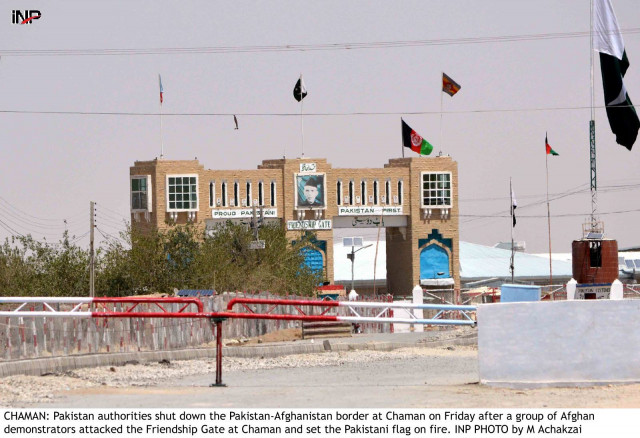Making enemies geometrically?
Decisions Pakistan and Afghanistan make today will affect futures of both nations

What both countries need to do is to maintain a diplomatic channel through which repatriation is more dignified. PHOTO: INP
Meanwhile, lawmakers and policy advisers have realised that population holds the key to maintain law and order and shape up the economies.
Take the example of Khyber-Pakhtunkhwa, we’ve finally decided that it cannot bear the burden of refugees anymore. And although there are not many complaints, the immediate decision has not been received well by the Afghans. It has also been questioned by communities affected by the decision.
While there are lengthy details and heated arguments involved in the entire process that has resulted in the repatriation of unregistered Afghans, many agree that it is the right decision, even if the way in which the process is taking place is highly debatable.
Perhaps the worst affected is the medical industry of Peshawar, as hospitals have had to lay off staffers and some of them shut certain sections due to the lack of a workforce.
At the same time, officials believe that when Afghans accept the visa process to enter Pakistan as a norm, the equilibrium will be regained. The proof is that in the initial days, there were only around 500 people who entered Pakistan legally through Torkham. Now, after a span of two months, there are more than 2,000 people crossing the borders through legal means.
An Afghan student said that the process was more dignified than it previously was as they were not stopped at different places while entering Pakistan. But the majority thinks otherwise. The question is then whether they will think the same in due course of time?
For now, traders moving across the border from Pakistan complain of their documents being torn by Afghan authorities as a reaction to their return.
The general perception is that of chaos. But those in the know understand that the decision is an important one for our country’s economy, and more so for the tribal areas than the rest of the country.
What both countries need to do is to maintain a diplomatic channel through which repatriation is more dignified. Perhaps humanitarian organisations can take the lead role in this so the people from both sides do not suffer.
Both Pakistan and Afghanistan should remember that they are bound to each other geographically. Any emotional decision from either side will have a lasting effect on what is already a complicated relationship.
Published in The Express Tribune, August 31st, 2016.













COMMENTS
Comments are moderated and generally will be posted if they are on-topic and not abusive.
For more information, please see our Comments FAQ